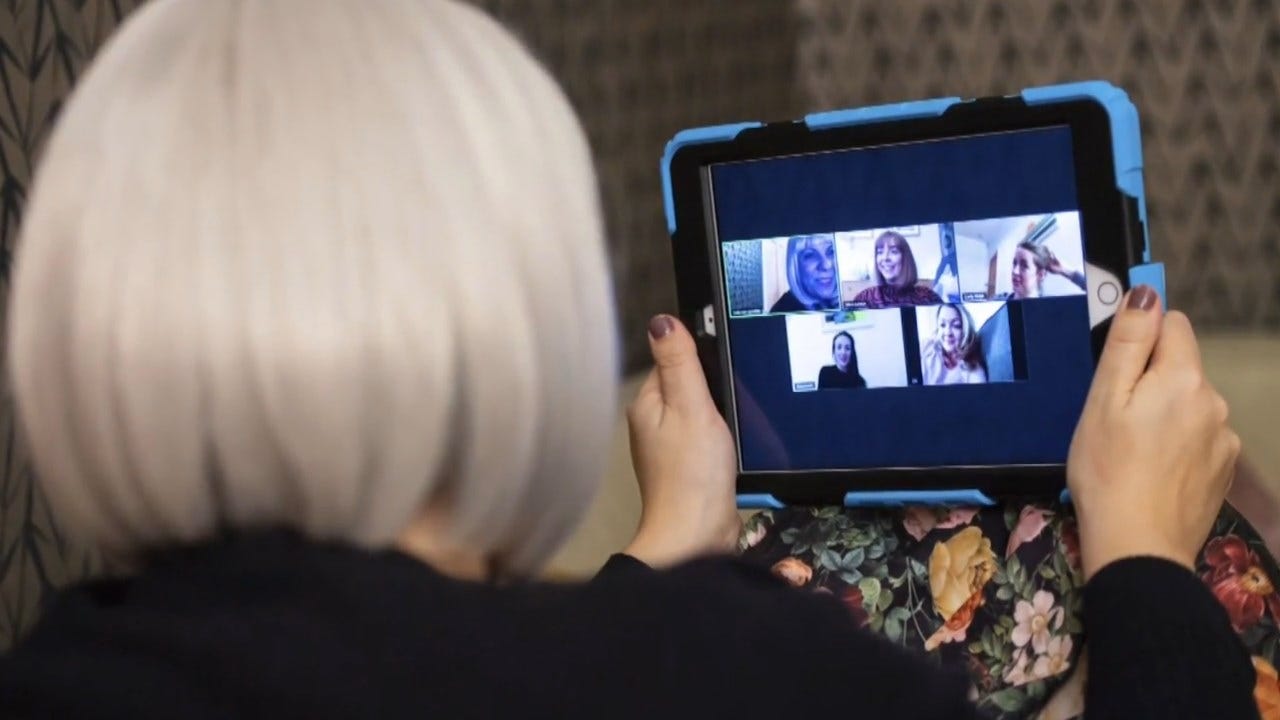The FBI is warning about reports of people intruding on Zoom calls with pornographic or hate images. The popular app said its number of users has ballooned from about 10 million to hundreds of millions with people isolated at home under coronavirus precautions.
But, attackers have discovered Zoom too, as one Long Island mother found out earlier this month.
Michelle, who asked that her last name not be used because she fears more online attacks, said her 14-year-old daughter was online in an "Ask the Rabbi" class for her private girls' Modern Orthodox high school when some boys "Zoom-bombed" it.
"First, the screens were completely black and they were saying all these anti-Semitic things, cursing them out, saying you f***ing Jews, et cetera," Michelle told CBS News Consumer Investigative Reporter Anna Werner. "And then one boy suddenly stripped and was naked."
Michelle said her daughter was upset. "She was very embarrassed by it, and she just said, 'I can't talk about it,'" Michelle said.
Wired editor and CBS News contributor Nicholas Thompson said hackers are taking advantage of the millions of new Zoom users.
"The internet brings out base instincts in people. It's true with every new platform," he said. Of novice users, he said, "They don't know the privacy settings. They don't know how to secure it, and so suddenly, they're vulnerable to monsters who want to interrupt and insult them."
Zoom founder and CEO Eric Yuan said his company wasn't prepared for the influx of novice users.
"I think this is a mistake and lesson learned," he said.
He said businesses using Zoom typically have IT departments that require employees to use passwords and enable additional security features, something first-time users often don't do.
"So this is something new, too. Quite often those are also first-time Zoom users, as well," Yuan said.
Asked if it's fair to blame the users and if the company has a responsibility to protect them, Yuan said, "Absolutely right, I think that's why I say we did not do a good job. When we offer the free service, we should have a training session, we should enable a password. Looking back, we should have done that. Absolutely. This is our oversight."
But Donnell Williams, who heads the National Association of Real Estate Brokers, was not completely satisfied with the company's answers. "It's not right," he said.
Williams had over 200 people in a Zoom conference meeting Wednesday when someone hacked in and drew a picture of male genitalia on the screen and then started making racist comments.
"And then the slurs, I mean, using the N-word. I mean, in front of all of my attendees, who are respected people in our community," Williams said.
Thompson said these hacks have hurt Zoom's reputation.
"I think there's going to be a brand hit for Zoom, without a doubt. People are going to have a few negative connotations about Zoom bombs and privacy failures for a long time with this company," he said.
On the other hand, he said, most people still want the service, including the people interviewed, on Zoom, for this story.
"I don't blame Zoom one bit," Michelle said. "This was a bad experience for these children, and hopefully it won't happen again, for sure."
Yuan said he's taking steps to address the problem. Passwords have now been put in place by default, and K-through-12 schools will use an additional security feature called the "waiting room," which allows users to see who's joining and restrict access. Anyone can add that feature in their settings.
For more on the steps the company has taken and to learn more about enabling security features on Zoom, you can read Yuan's blog.










